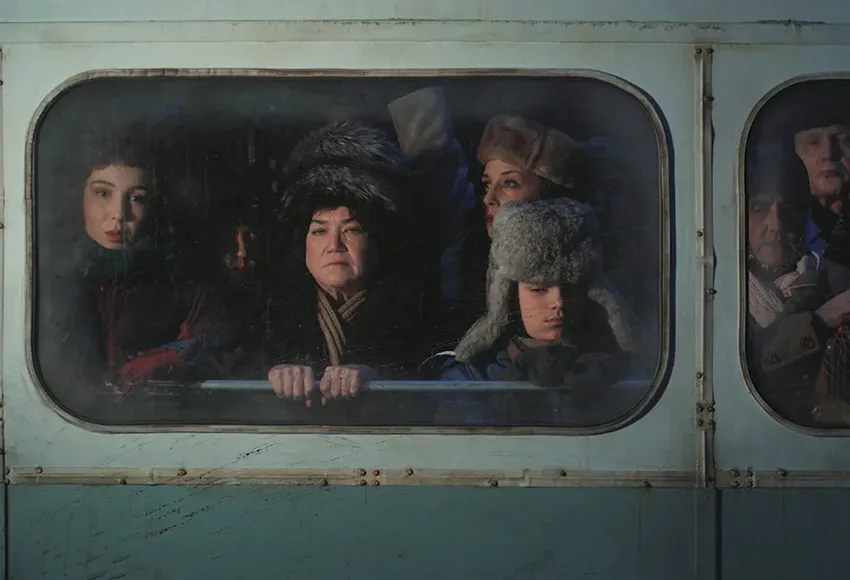Editor's note: The following article contains one or more spoilers for the film Potato Dreams of America.
Seattle filmmaker Wes Hurley makes an immediate impression. He walks into a room with his curly mop of hair hanging in his face and a crooked smile perched upon his lips, and one almost cannot help but be immediately enamored with him. As quiet as he may appear, there is something about Hurley that fills up an entire room, and once you start chatting with him, it's almost as if you were old friends picking back up a conversation you started years ago.
Over dual bowls of red chowder at Six Arms restaurant on Capitol Hill, we sat down to chat about the film Potato Dreams of America. A memoir of sorts, it's largely based on Hurley and his mother's journey from Vladivostok, Russia, to Seattle when he was a teenager. It is also a coming-out story, about when Hurley revealed he was Gay to his mother when he was 16. Both worried that his new conservative stepfather would find out and ship them back to Russia.
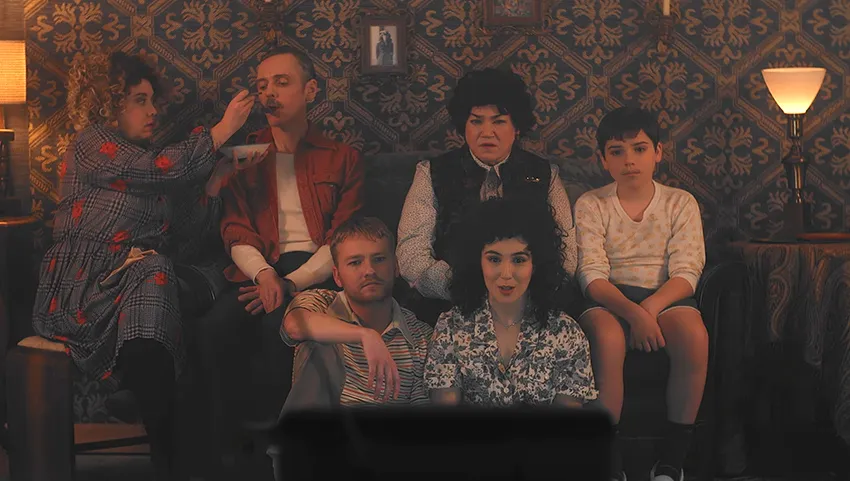
It's a crazy, highly stylized picture split into two halves. The first set in Russia is a candy-colored fever dream that John Waters, Wes Anderson, and Jacques Demy would likely enthusiastically cheer; the other section here in Seattle is a more down-to-earth, authentically lived-in presentation reminiscent of the works of Cameron Crowe or Richard Linklater.
All of which plays very differently in some respects now than it did back in 2021 when the picture was screened twice locally, once during the Seattle International Film Festival in April, the other when it was the opening night attraction for the Seattle Queer Film Festival in October. In light of Russia's invasion of Ukraine, the darkness of the first half, the threats of violence and intolerance, in many ways feel more pronounced, more menacing.
"It does play differently," Hurley warily laughed in agreement. "Even people who were involved with the film and have had long conversations with me about growing up in Russia, they're all now like, 'Oh my god! You've been saying this about Russia for so long now. It's all true. I really get it.' They feel bad that they didn't fully understand what I was trying to tell them."
"And that's fine," he continued confidently. "I'm glad they see that now, and it also helps make some of the moments in the film stand out in ways they maybe didn't before. Like, the scene at the high school with all the kids chanting all that horrible stuff. That was the point in my life where I realized Russia was going to be the next Germany. If there was ever going to be a WWIII, Russia would be the next Germany. That's what I thought. Sadly, here we now are.
"But it's also strange. That moment used to play like a distant memory. I remember my mom and I were like, we need to get out of here. We're willing to go anywhere. But it was a memory, not much more. But now, it all feels fresh again. Tragically fresh."
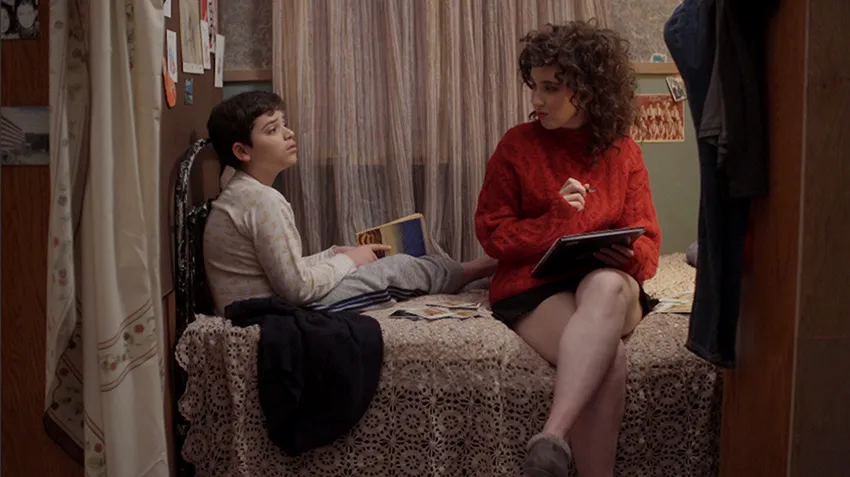
Mom
What feels positively fresh is the relationship Hurley shares with his mother. He wanted Potato Dreams of America to be as much her story as it is his. This was important to him, even if it took her some time to want to sit down and watch the film for herself.
"My mom refused to watch it," said Hurley with a bemused smile. "I was editing at her house most of the time, and I would try to get her to watch individual scenes with me, and she always would say no. She wanted to watch it with an audience. She didn't want to see the film until it was finished. She waited until she could have that experience.
"Of course, Three Dollar Bill got her to come up on stage during the festival last year. She was so shy. She told me to ask them not to do that again next time." Hurley pauses for a moment, a twinkle in his eye. "But I know she loved it."
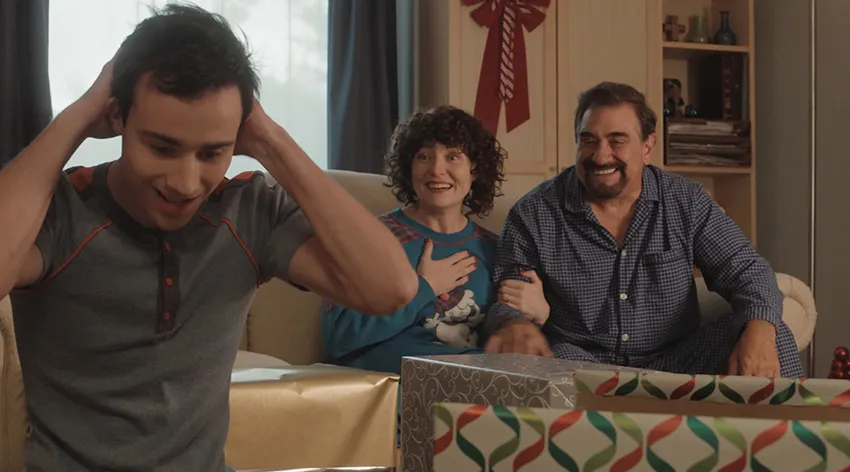
The immigrant experience
Hurley was also insistent that the immigrant journey to the United States be represented as clearly and as cleanly as possible. "I wanted to show in a noncerebral, almost intuitive way the culture clash and the immigrant experience," he stated. "You're a completely different person. You're in a whole different world.
"My mom, who was this sharp-tongued, highly educated doctor, came here and she was suddenly a child. Her level of communication was like a child's, and at the same time, she's suddenly very subservient to this new man. Back in Russia, she'd kick just about anybody in the balls who tried to tell her how to live her life."
One of the ways Hurley chose to represent all of this was by having different actors portray his mother, named Lena in the film, and himself, nicknamed Potato, in the Russian and Seattle sections. In the former, Sera Barbieri and Hersh Powers took the honors; in the latter, Marya Sea Kaminski and Tyler Bocock inhabited those roles. It's part of the tonal shift between halves that the director did have minor reservations about, at least in regard to how the audience would respond.
"I was worried," he admitted. "But I have my own unique take on things. If I'm not doing this in my own way or presenting things in my own style, then why am I doing it? There are so many movies about coming of age, about coming out, about the immigrant experience, and this is my contribution to all of that, and I needed to do it in my own way.
"And some people won't get that. But some will."
Part of the danger was in how the dialogue was presented. During the Russian section, no one speaks with an accent. In the Seattle portions, those thick Russian accents become an important plot element.
"And that's also risky!" Hurley exclaimed. "People like the Russia cast. They get used to them, and then suddenly there are new people playing these characters.
"This change was very radical for my mom and me. Because of that, I felt it necessary to make that feel radical for the audience. It's like the accents. Those accents aren't as important when you're telling the Russian section of the story. It's like, if you go see a Chekov play, nobody ever speaks with an accent, because that's not what it's about. It's about the play.
"When you get to America, language is everything. It's so important. It's a barrier to so many things. But also, it's like with my mom in the film: How many of her language slips are real? How many of them are intentional? And it's amusing to see it play out, but it's also an important part of the story. There are moments where my mom has to play dumb for my stepfather because he's so intense. It's her way of de-escalating situations.
"But I like shaking things up. I mean, I'm not interested in experimental cinema, but I do like experimental elements in cinema. I feel like cinema is one art form – especially American mainstream cinema – where people are not used to experimentation. I like challenging those perceptions."
"I do struggle with that," he admitted after a brief pause. "I do want my work to be accessible, and I do want to make money and be successful. But that's not what I'm all about. I enjoy playing with audience expectations."
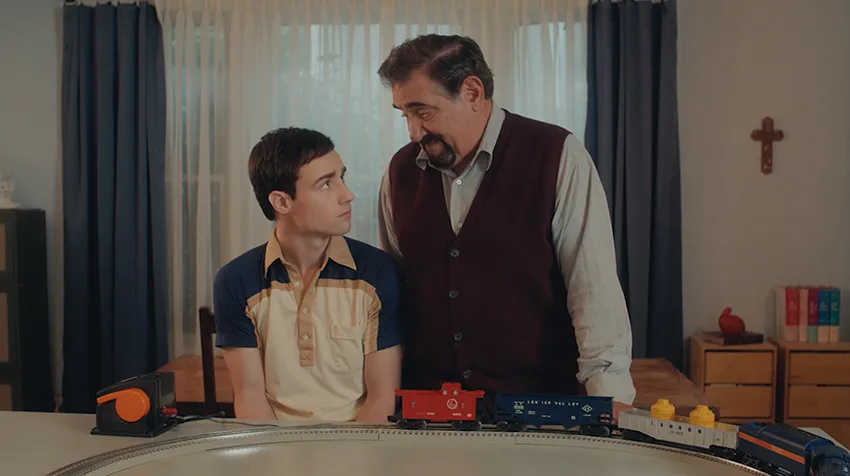
The actors
This did not mean he kept the actors portraying Lena and Potato separated. The director felt it was vital to let them collaborate, especially as it pertained to Powers and Bocock.
"We shot the Russian half last," he explained, "but we made sure Hersh got to come on the set a couple of times during the Seattle section to see Tyler work and to see some of the footage. I thought that was important. But mostly it was just talking things through with them, and I also think that Hersh and Tyler spent a lot of time just studying me. My mannerisms and everything."
The most recognizable actor in the ensemble is former The Wonder Years star Dan Lauria. He portrays Potato's religious, conservative stepfather John, an initially overbearing beast of a man who hides a painful, long-buried secret, ultimately coming out to mother and son as Transgender and asking the two to refer to her as Grace.
"I wanted an all-Seattle cast," Hurley said. "But for distribution purposes, you do want to have a couple of name actors if you can. When our casting director in New York pitched Dan Lauria, I admit I initially never would have thought of him. I mean, he's done everything, but The Wonder Years was his biggest role, and he's such a terrific father figure in that show.
"But I realized he was perfect. He can have that dangerous vibe, but he can also still be likable, and that was important to me. There is so much about the character that is going on in the film. It's a lot. But there was even so much more to my stepfather that we couldn't get into. It just would have made the story too complicated.
"So we needed an actor who could convey a variety of emotions, and it was important to me that the audience love this character, even though they're so conservative and somewhat loathsome at the beginning. I wanted people to relate, and I needed them to really feel for Grace when she finally comes out.
"Dan brings all of that. There's something decent about him. Even when he's yelling and doing some of these potentially horrible things, I still felt there was something likable about him. Dan did that."
Even so, John's reveal and transformation into Grace happens rather suddenly, and after playing to mostly positive reactions on the festival circuit, Hurley has come to realize that some viewers find this moment rather shocking – and not necessarily in a good way. Not that he would have changed anything if he could go back and do so now.
"That abruptness wasn't even one of the risks I considered when I was making the film," he said. "This is how it happened in real life. I wasn't thinking about character development or the audience's reaction when I wrote the script. I was thinking about how this actually happened.
"People kept telling me I should add hints. Or that we should sprinkle some of John/Grace's coming out throughout. But we had no idea! My mom and I didn't know anything. This is how it went for us. My stepfather made such a huge effort to keep it all in, and I felt it important to be authentic to that. There were no clues for us. This is how it happened."
Coming out
As for his mom, while the film represents his coming out to her as he remembers it, there were other aspects of their relationship he decided to keep personal. "I tortured my poor mom!" said Hurley with a laugh. "I came out to her when I was 16, and she was just as accepting in real life as she was in the film. But after that, all I could think about was being Gay. I would inundate her with all this stuff. Constantly. It was all I wanted to talk about. Finally, at one point, she was like, 'Honey, I love you, but can we talk about anything else? Just for five minutes?'
"Part of me couldn't believe it. But then I realized, this was all I had been processing. I was in this place of learning to navigate being Gay and trying to accept myself. It was all about me. My mom just needed a five-minute break."
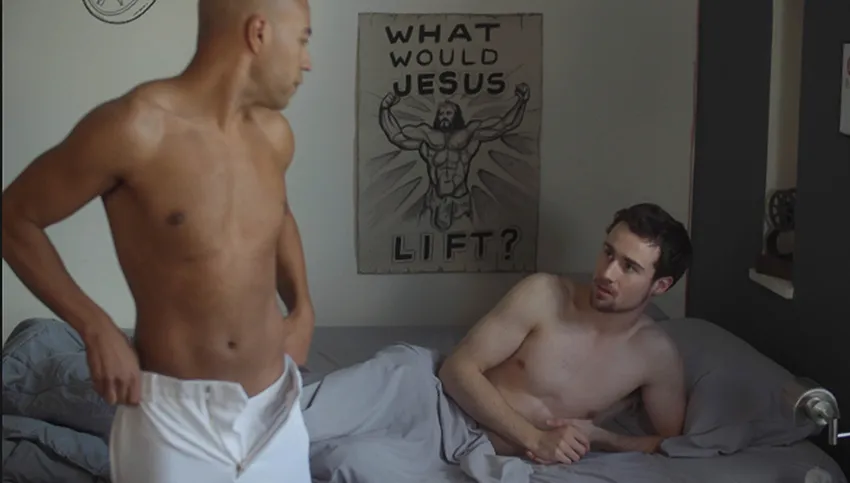
Where Hurley did decide to go for broke was during a montage of Potato's various sexual escapades after he came out and fully started to embrace his identity as a Gay man. "It was really fun," he beamed. "My best friend loaned us her apartment, and she didn't know what we were going to be doing. She showed up one day and was like, she had never been happier. There were all these naked men in her apartment lined up against the wall. She loved it.
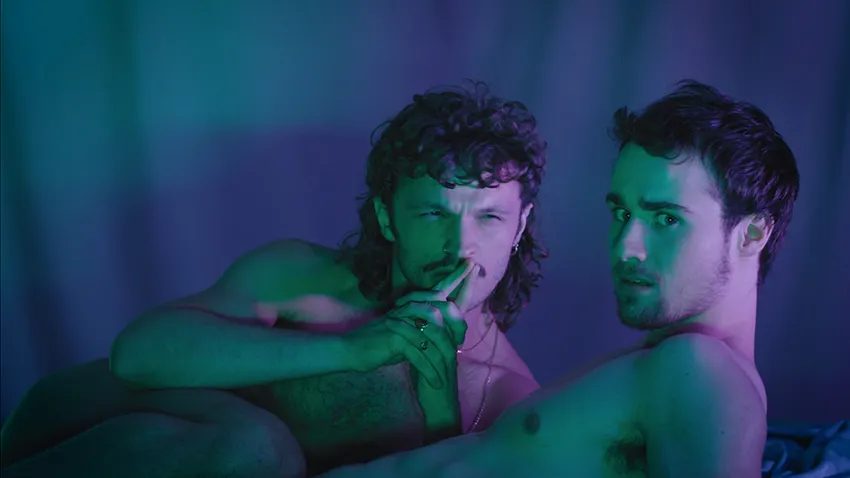
"In all seriousness, though, I've gotten all sorts of reactions to the scene. Some older Gay men feel like I'm perpetuating the stereotype that all Gay men are whores, but that was not the point at all. For me, I wrote the scene to show the change in my identity... in being a Gay man. I went from not wanting to acknowledge where I'm from to – once I'd become more comfortable with myself – [realizing] I could use my identity to get something. I could even get laid if I wanted to.
"As funny as that is, I think it is important to show this change. We can be so scared of change, and the point of the scene is to show this change and the positive aspects of that over time, and I just thought it would be funny to also show this through sex. I'm super sex-positive as it is, I'm as passionate about that as I am about LGBTQ rights in general, and I want a sex-positive society. So why not, right?"
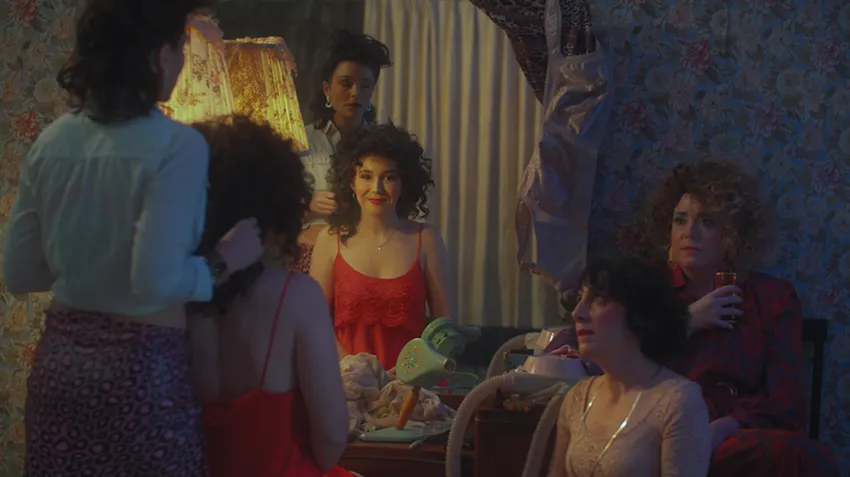
Spotlighting Seattle
What's been true of all of the filmmaker's work, especially his award-winning web series Capitol Hill, featuring Ben DeLaCreme, is that he's always been determined to showcase Seattle in its best possible light. That's especially true here.
"It was one of my goals," said Hurley. "I look back at some of my work, and so many things in Seattle are gone now. People have always been so generous to me, and so many of [those] businesses and locations are gone now. This makes me sad, but I'm glad I was able to make this record.
"But this was the first time I would go on the set and not know everyone. I remember, our first day at Scarecrow Video, I was so used to working with two or three other people, and here were all these additional faces I didn't know. That was really weird. And really cool. But still very strange. Made me feel like I was working on something really big, even if we were still this small independent movie."
As for how he hopes audiences respond to Potato Dreams of America now that it is off the festival circuit, has received a limited theatrical release, and is readily available on DVD and VOD? "It's changed over the years," Hurley said. "You want people to like it, of course, but from there, things end up somewhat out of your control.
"But now, with current events, with the time we live in, I want people to have faith – not religious faith but hope and faith in themselves that they can make the world better. That we can make the world better. I want them to watch the film and believe that we won't be stuck in this dark time we seem to find ourselves in right now. I want people to believe in America, but in a good way, in an aspirational way."


